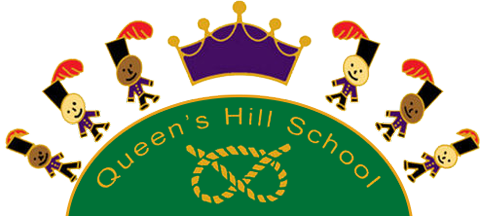We share a passion for learning
At Queen’s Hill Primary School, we aim to provide a rich, inclusive and creative curriculum which empowers our children to become confident, reflective and curious learners.
A curriculum which is broad and balanced and which builds on the knowledge, understanding and skills of all children, whatever their starting points, as they progress through each Key Stage. The curriculum incorporates the statutory requirements of the National Curriculum 2014 and other experiences and opportunities which best meet the learning and developmental needs of the pupils in our school. The aim of our curriculum is for pupils to have the requisite skills to be successful, independent and motivated learners in readiness for their next stage of education. We believe it is important that the curriculum considers the development of the whole child, with academic success only being one part of this.
National requirements and school requirements are mapped out as a whole school and then individual year groups plan the curriculum for their pupils accordingly. The curriculum is underpinned by the school’s ‘crowns’ (concentration, challenge, grit and determination, teamwork, reflection, creativity, curiosity and independence). These are taught on their own and through other areas of the curriculum, including assemblies. The spiritual, moral, social and cultural development of our pupils and their understanding of the core values of our society are woven through the curriculum.
We comply with our duties in the Equality Act 2010 and the Special Educational Needs and Disability Regulations 2014 about making the curriculum accessible for those with disabilities or special educational needs. We have two Inclusion Leaders (qualified SENCOs) who oversee our provision for pupils on the SEND register. Along with the AHT for Curriculum Development they ensure that our curriculum is inclusive and fit for purpose.
